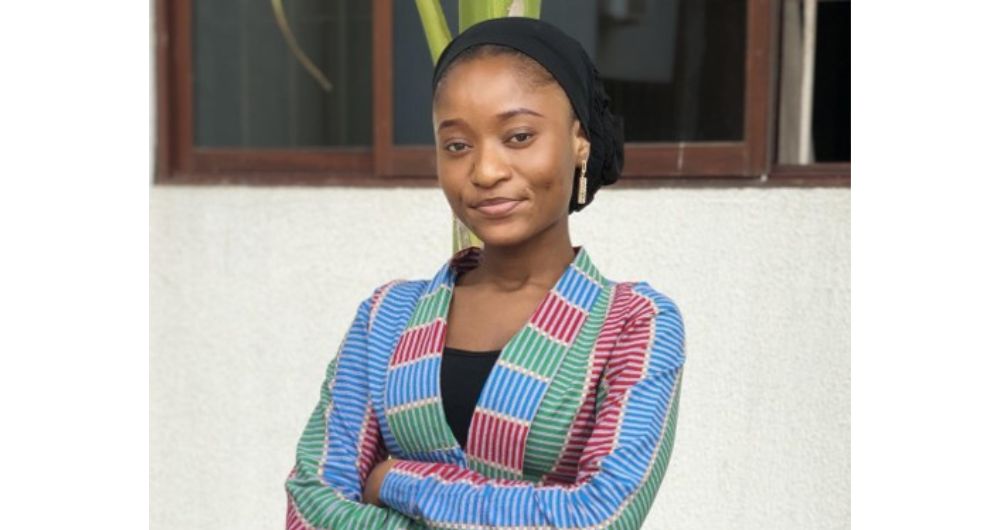
Khadija Iddrisu is a PhD candidate in the Insight SFI Research Centre for Data Analytics at DCU. She is a recipient of the Google and Facebook Sponsored African Masters of Machine Intelligence program and holds a masters in Mathematical Sciences from the African Institute For Mathematical Sciences Ghana. Khadija is also a co-organizer for the women in Machine Learning and Data science Chapter in Ghana. She was also recently awarded the best female data analyst/engineer award at the Ghana Ladies in Tech Awards.
What inspired you to pursue a career in research, and how did you get started in your field?
Growing up, I had a curious and investigative mindset when faced with problems. This had a significant impact on my choice of a career path. My initial interest was in medicine because I would get a real sense of satisfaction whenever I’d see people recover from a sickness. After my application to medical school was turned down, I tried finding ways in which I could still contribute to the sector. In my curiosity and investigating into different approaches, I happened to attend a six week intensive AI training program where at the end of which, I worked on detecting poultry diseases with computer vision. This sparked a newfound passion for the field and the realization that my research could lead to advancements in healthcare and other industries. It became a goal of mine to learn more about AI and Machine Learning and pursue further research in the field. My master’s thesis on “Deep Learning Architectures for Brain Vessel Segmentation” was well-received, earning recognition at various conferences including the Deep Learning Indaba: Africa largest Machine Learning Conference, the Inaugural African Women in AI Summit by the Tony Blair Institute for Global Change and the Ghana Data Science Summit where I was awarded for second best poster presentation.
At this moment, I am very excited for this opportunity to advance in my research career as a PhD Candidate at Insight SFI Research Centre for Data Analytics known for its cutting edge-research in data analytics and world-class experts in the field. This is indeed a dream come true and I am eager to make the most out of this opportunity.
What advice would you give to other women who are just starting out in research?
Research can be complicated and frustrating a lot of the time. There will always be days when we feel like we are not making any progress and even worse, we do not see a way forward and this will always be a true test of our passion in the work we do. I would say it is best to determine our strengths and passions and let them take the lead. With hard work and perseverance, everything falls into place. Also in this journey, I have encountered situations when the other gender did not genuinely respect my abilities but instead made comments about how I got where I was because I was female. I think that more than a privilege, our abilities are what bring us into these positions. This is why we must constantly strive to develop ourselves while providing more young women with better opportunities to pursue careers in science and technology related research.
How do you think the research community can support and encourage more women to pursue careers in science and technology?
The research community has a crucial role to play in supporting and encouraging more women to pursue careers in science and technology. To achieve this, it is essential to understand the needs and experiences of women in science and technology and work to eliminate the barriers they face. One effective way to do this is by promoting female role models and highlighting successful women in the field. Women need to see other successful women in STEM to know that it is possible. This not only provides inspiration, but also helps demonstrate that a career in Science and Technology related research is achievable for women. Additionally, fostering a culture of inclusivity in educational
institutions and providing hands-on experience in science and technology can help attract more women to the field. Another important step is to address implicit biases and discrimination in hiring, promotion, and recognition practices. By promoting diversity and equality in these areas, the research community can create a supportive and inclusive work environment for women in STEM. Finally, encouraging collaborations across institutions, disciplines, and countries can provide exposure to a wider range of perspectives and ideas, and promote diversity within the field. By implementing these initiatives, the research community can play a key role in supporting and encouraging more women to pursue careers in science and technology.
You can read more about Khadija Iddrisu here.